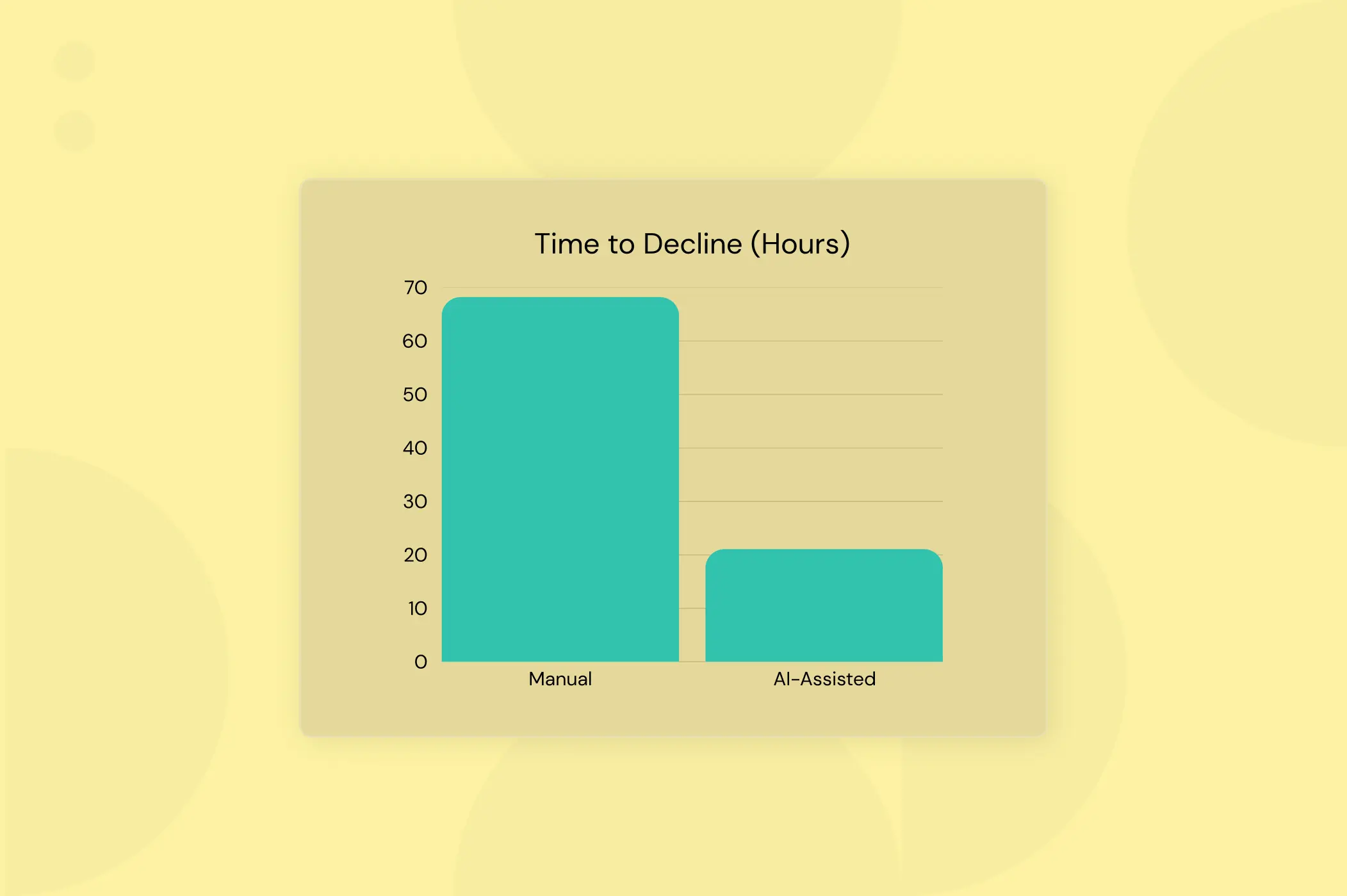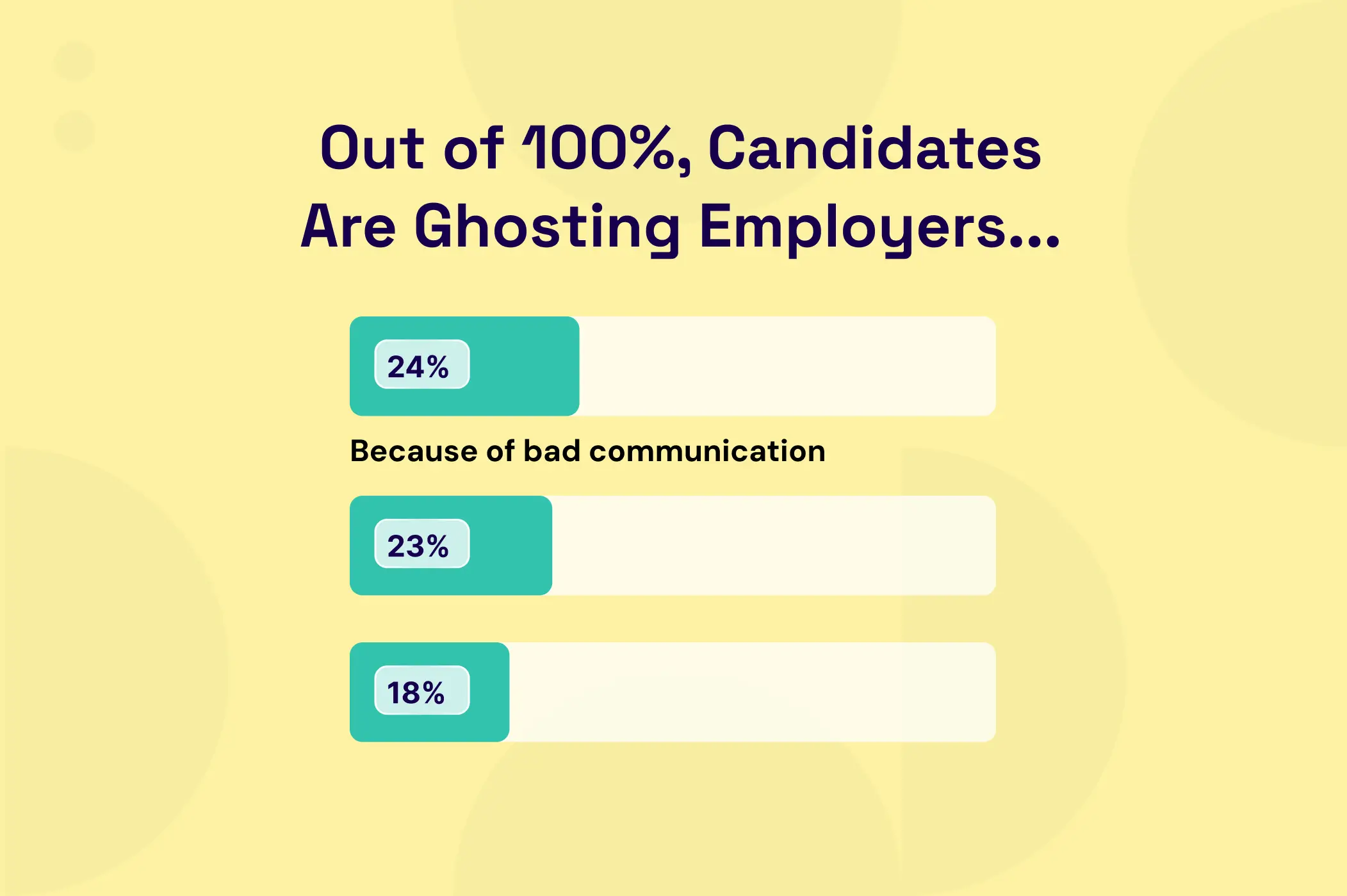I have had the pleasure of working with some of the fastest-growing technology companies in the world. In my experience, there's a concept often relegated to the 'nice-to-have' column, rather than the 'business-critical' one: Candidate Experience. While many businesses acknowledge its importance, few realize its true potential to not just enhance brand image but also drive significant cost savings. In today's blog, we'll unravel the true power of data-driven candidate experience using two recruitment scenarios. The results might just shift your entire perspective!
Why Candidate Experience Matters
At its core, the candidate experience encapsulates every interaction a potential hire has with a company, from the initial outreach to the final job offer. It's a blend of communications, processes, and feedback mechanisms. And while it may seem intangible, its impact on recruitment efficacy is measurable and, most importantly, significant.
According to the Talent Board, companies that invest in candidate experience are 2x more likely to improve their cost per hire and time to hire. Moreover, a Glassdoor survey found that 61% of job seekers find the application process to be the clearest reflection of how a company treats its people.
But more importantly, from an operational perspective, high-quality candidate experience marginally increases conversion at every stage. Ask any experienced recruiter and they will confirm this.
Outreach & Applications : Candidates are more likely to reply to a message or apply if they know from independent sources like Glassdoor that they are going to be respected.
Tests & Case Studies : Candidates are more bought into the company and will spend more time and effort researching and working on take-home steps.
Interviews : Candidates who have been respected and given a high quality experience will also prepare more for interviews, do more research and and more likely invest in their interviews
Offers : Candidates who have been given a high quality experience will of course be more likely to accept an offer on the face of it, but additionally, in demand candidates are more likely to choose your offer over a competitor, further increasing offer acceptance.
Data from candidate.fyi shows that companies who invest in their candidate experience have seen an increase of 10% in their offer acceptance rates.
So what we are seeing here are aggregating marginal gains. What may seem like a series of small improvements, when smushed together, represent a huge gain.
Breaking Down the Numbers
Let's do a thought experiment together. We work for a tech company, Shoes.com. Shoes.com are on a typical scaling journey. They are at 200 employees and have received a significant Series A/B investment. They aim to grow to roughly 1300+ employees in six years. About 900 will be Tech with the remainder being sales, go-to-market and back office functions like finance, HR & Legal.
So a standard, meat and potatoes hyperscaling company akin to most of the Web2 techy companies out there.
To better understand the fiscal weight of candidate experience, Let’s compare two scenarios with just the tech hiring, so, accounting for roughly 10% attrition, 1009 tech hires in 6 years1
Unlock the Future of Recruiting— Book a Demo Today!

Scenario One - The Status Quo
Let’s imagine for Shoes.com, the recruitment process, conversions, and level of effort to make 1 tech hire looks like this :

I would argue that this is fairly typical of the scaling businesses I have supported in the past 12 years. Not terrible, not amazing. But of course, it's a generalization. This doesn't matter, as it's just an arbitrary baseline for scenario two.
Let’s also assume a reasonable amount of time for each stage, so 60 min interview, 30 min screen, etc (I have a full table of the time per stage per role at the bottom)2
And the cost to the business for each role is based on US averages per role in 20233
This means that the hidden operational cost to make one tech hire, not including systems and tools, etc, is $1,348.
And the hidden operational cost of 1009 hires over a 6-year period is roughly $1,360,632
*Amazingly, these costs are often not measured by businesses. Cost per hire can be as crude as the cost of the TA function divided by the number of hires per year.
Scenario Two - The Candidate Experience Premium
Now let’s look at the exact same company in every respect but one. There are marginal increases at each stage due to a genuine investment in consistently high candidate experience. Let’s be super conservative and say 4% per stage :

You can already see a significantly lower level of effort to make a hire. But what about cost per hire? Has Shoes.com saved money just by being a bunch of lovely, respectful, super awesome people??? Yes, quite a lot of money in fact.
The hidden operational cost for this hire is $1,010.
Over the 6-year period of tech hires, the cost is $1,018,086

That’s $342,546 cheaper…for a company to treat candidates like customers on its growth journey. That will pay for the new ATS your head of Talent Acquisition is banging on about. Or like…the CEOs third Tuscan villa.
The Economic Ripple Effect
From a purely economic perspective, the time saved translates into tangible cost savings. When factoring in the hourly rates for recruiters, engineers, HR professionals, and engineering managers, putting a premium on candidate experience showcases the potential to save a company substantial sums. But it’s more than just direct financial savings. With reduced time-to-hire rates, companies can fill roles faster, minimise operational downtimes, and maximise productivity.
The Power of Marginal Gains
At its heart, this exercise demonstrates the concept of marginal gains. Often used in the world of sports, it refers to the cumulative impact of small percentage improvements in any process. In our case, a mere 4% improvement in conversion rates at each recruitment stage compounded into a significant time and cost savings.
Conclusion: Candidate Experience is Business-Critical
Contrary to popular belief, candidate experience isn’t just about maintaining a positive company image. It’s an influential lever that businesses can tweak, measure, and optimise to derive tangible value. As highlighted in our scenarios, improving this experience through even marginal percentages can lead to substantial savings, both in time and money.
That's why I'm so excited about tools like candidate.fyi that can turbocharge the candidate experience across an entire business.
In an era where every decision can be informed by data, isn’t it time we let data lead our understanding and shaping of the candidate experience?
So, next time someone mentions 'candidate experience,' know it’s not just a recruitment nicety. It’s a strategic necessity.
Luke’s Back of a Napkin Calculations
- Growth Projection

- Time Per Stage


3.Business Cost Per Role

*data pulled from Salary.com, levels.fyi, Builtin.com, talent.com


.webp)








